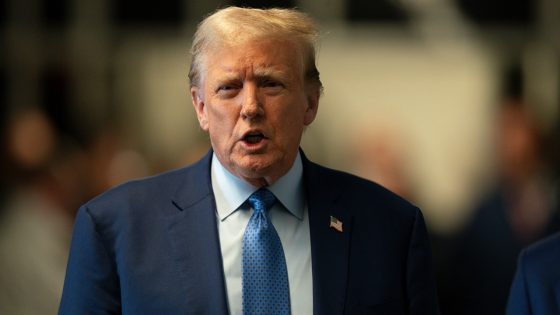Former president Donald Trump has promised to pardon supporters of his who have been charged, convicted, and in some cases imprisoned for crimes committed during the January 6 attack on the Capitol.
But according to a new report from anti-authoritarianism group Protect Democracy, he may not actually have that power even if he is returned to the White House after this year’s election.
The report, titled Checking the Pardon Power: Constitutional Limitations & Options for Preventing Abuse, lays out a number of circumstances in which a presidential pardon would not be valid because it would not be a legitimate use of the president’s authority to grant reprieves for “offenses against the United States”.
For some time now, Mr Trump has been promising to free violent Capitol rioters, including those who’ve been convicted of assaulting police officers as they stormed the US Capitol in a last-ditch, desperate effort to prevent certification of Mr Trump’s 2020 election loss to Joe Biden.
In one post to his Truth Social platform last month, the disgraced former president said one of his “first acts” in office if he wins a second term would be to “Free January 6 Hostages being wrongfully imprisoned”.
He has also routinely referred to the convicted violent criminals — some of whom are in prison for offences such as Seditious Conspiracy — as “horribly treated” and claims they are political prisoners who have been persecuted for their support of him and his political movement.
One Republican-appointed federal judge, Royce Lamberth, said in January that he has been “dismayed to see distortions and outright falsehoods” regarding the violent riot “seep into public consciousness”.
Judge Lamberth, who made the comments during sentencing for a January 6 defendant, opined that he “[could not] recall a time when such meritless justifications of criminal activity have gone mainstream” over his 37 years as a federal judge.
Mr Trump also routinely used pardons during his first term as a way to reward supporters for their loyalty to him — and in some cases repay them for refusing to cooperate with criminal probes into his conduct.
He infamously pardoned his former chief White House strategist, Steve Bannon, his ex-national security adviser, Michael Flynn, his former campaign chair, Paul Manafort, and his longtime associate Roger Stone in the waning days of his term. All four were convicted of federal crimes but were rewarded by Mr Trump for their refusal to turn on him.
The possibility that Mr Trump could return to the White House and resume such uses of the president’s pardon authority has alarmed legal experts and anticorruption activists, even as many commentators have suggested there are not limits to the president’s authority when it comes to pardons.
But one of the report’s authors, Protect Democracy policy advocate Grant Tudor, says that conventional wisdom doesn’t stand up to scrutiny.
In a phone interview with The Independent, Mr Tudor explained that the courts have exhibited no qualms about placing restrictions on the president’s pardon power.
In one landmark case, Burdick v United States, the Supreme Court found that then-president Woodrow Wilson could not unilaterally issue a pardon to New York Tribune editor George Burdick to remove the threat of incrimination against Burdick and force him to give evidence before a grand jury.
The court’s ruling stated that Wilson was within his ability to issue the pardon, but at the same time, the pardon had to be accepted by the intended recipient to be effective.
Mr Tudor explained that the court found an “unresolved tension” between the pardon clause and the Fifth Amendment, the latter of which placed constraints on the president’s ability to pardon offences.
He also said the pardon power’s counterpart in English law — the royal prerogative of mercy — has also been subject to restrictions over its’ long history, citing the 1328 Statute of Northampton, which stated that the sovereign could not grant a pardon when doing so would violate his oath. Three centuries later, the 1869 Bill of Rights suspended the King’s ability to use pardons in ways that disregarded acts of Parliament.
Similarly, Mr Tudor said a pardon for January 6 rioters would run up against constitutional constraints because it would be a situation in which “the leader of an insurrection is pardoning fellow insurrectionists”.
“We’ve encountered many situations where presidents have pardoned those who took up arms against the United States … in all of those instances, the point was to quell unrest, not to sanction it,” he said. “It would be the first time that a president who is himself a criminal defendant, in that same scheme is pardoning those who helped to further it”.
Source Agencies


